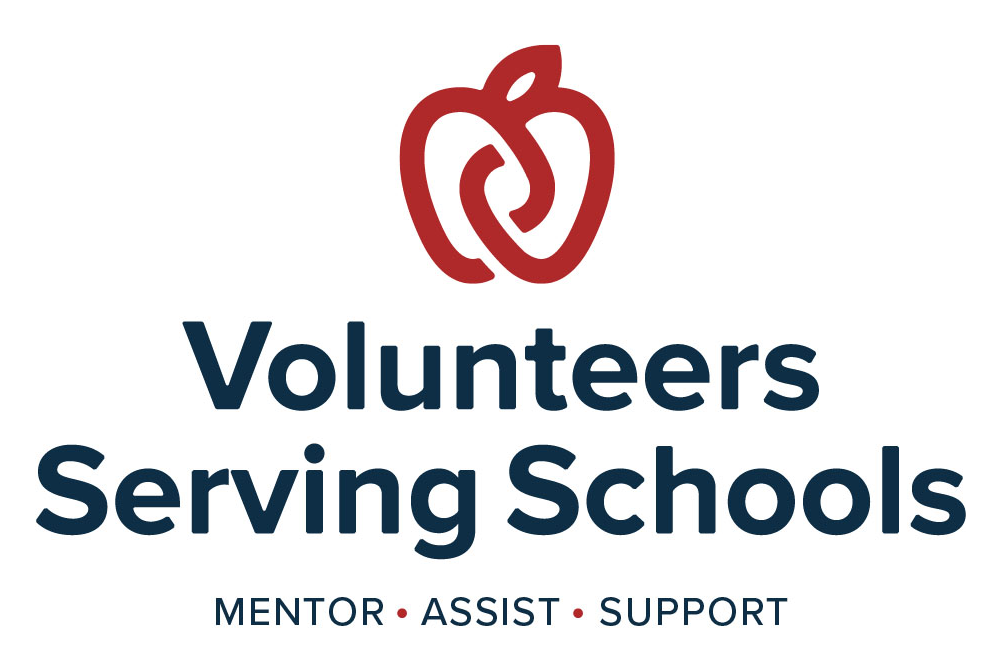- Olathe Public Schools
- Volunteer Programs
Volunteers Serving Schools
-
The Olathe Public Schools volunteer program, Volunteers Serving Schools, has many opportunities for adults who want to support the classroom or serve as positive role models. Volunteers Serving Schools connects adult volunteers to activities such as classroom helper, lunch buddy, reading or math helper, after-school homework helper, mentor, and special projects. Olathe's volunteer program brings the community into the classroom. Typically, adults meet with students one-on-one or help in a classroom once a week.
 There are students on a waiting list to connect with an adult mentor or who need academic support. Volunteers and schools work together to schedule the best volunteer time, such as during lunch or a class period.
There are students on a waiting list to connect with an adult mentor or who need academic support. Volunteers and schools work together to schedule the best volunteer time, such as during lunch or a class period.Classroom helpers assist teachers as needed, whether it be helping students in a small group setting with reading, math and spelling or assisting teachers with bulletin boards, cutting, making packets, copying, and much more.
Community Development Director Heather Schoonover said volunteers help students meet their academic and personal goals as well as assist teachers with classroom needs.
The volunteer department offers training during the school year for adults who have applied and been accepted into the program. A background check is completed for each applicant.
- Read the Volunteers Serving Schools brochure (PDF)
- Read about one volunteer's experiences in the classroom
Highlights of the program:
- The 2024-25 school year had 640 volunteers and 150 partnerships contributing more than 22,300 hours of service to Olathe schools.
- A pen pal program called Script Pals pairs volunteers with elementary students.
- Living history volunteers make school presentations on history, psychology and their own experiences relating to significant periods of American history.
- The original volunteer program was Seniors Serving Schools and received the 1999 Olathe Community Pride Award from the City of Olathe. The award recognizes individuals, businesses and organizations that enhance the image of Olathe.
- The Confidence in Kansas Public Education Task Force presented the group with a Certificate of Merit in the Friends of Education Awards for 2001.
- The Rotary Readers program involves about 20 Olathe Rotary Club members reading to small groups of elementary students.
For more information about Volunteers Serving Schools, please email Pam Wolfe or call 913-780-8237. An online volunteer application is required. (Note: The online application is available through our software provider.)
Other Volunteer Opportunities
-
The Olathe Public Schools are fortunate to have a high level of community participation in many school activities ranging from parent-teacher conferences to after-prom and Project Graduation events. Parents and patrons are encouraged to show their support of quality education by assisting with after-school events or joining school councils and committees.
From volunteering in the school office to becoming PTO president, parents are invited to take an active role in their child's school community. Here are a few district committees and programs that rely on volunteers.
Parent-teacher groups
Parent teacher associations, parent teacher organizations, parent teacher clubs, etc. promote cooperation in matters concerning the education and welfare of students. Organizations have a variety of functions including communication between parents and the school, volunteer networking, social networking, and limited financial support.
Contact: school principals
Site Councils
Site Councils began in January 1993 under Kansas law. They provide support, advice, assistance and counsel to individual schools regarding their established School Improvement Plan. Some activities in which the councils may be involved include communicating needs and successes of the school, obtaining input from the staff and community, learning about the needs of the particular building, and learning about the School Improvement Process. Site Council membership is determined at the building level, but may include building administrators, school staff, parents, and community or business members.
Contact: school principals

